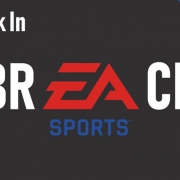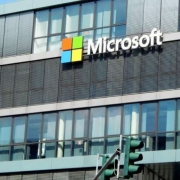Marriott Breach Exposes Data of Up to 500 Million Guests
By Amie Tsang and Adam Satariano
- Nov. 30, 2018
The Marriott International hotel chain said on Friday that the database of its Starwood reservation system had been hacked and that the personal details of up to 500 million guests going as far back as 2014 had been compromised.
The hotel group, which runs more than 6,700 properties around the world, was informed in September about an attempt to access the database, and an investigation this month revealed that unauthorized access had been made on or before Sept. 10, Marriott said in a statement.
The hotel chain said that personal details including names, addresses, dates of birth, passport numbers, email addresses and phone numbers for hundreds of millions of guests may have been compromised.
The investigation found that “there had been unauthorized access to the Starwood network since 2014,” and an “unauthorized party had copied and encrypted information, and took steps toward removing it,” the statement said.
Marriott said it wasn’t sure how many passport numbers and dates of birth were stolen but said that it was a “subset” of the larger number of affected consumers, since this information is not a part of every reservation.
Marriott hotels, including Residence Inn and the Ritz Carlton, operate on a separate reservation system. The company has plans to merge that system with Starwood’s.
Richard Gold, head of security engineering at the cybersecurity firm Digital Shadows, said the breach ranks among the largest of consumer data, on par with breaches at Yahoo and the credit-scoring giant, Equifax.
He said hotels are an attractive target for hackers because they hold a lot of sensitive information, including credit card and passport details, but often don’t have security standards as tough as those of more regulated industries, like banking.
“We deeply regret this incident,” Arne Sorenson, Marriott’s president and chief executive officer, said in a statement. “We fell short of what our guests deserve and what we expect of ourselves. We are doing everything we can to support our guests, and using lessons learned to be better moving forward.”
Investigations into the Marriott leak were announced by European regulators and the New York State attorney general, Barbara D. UnderwoodAfter Marriott Breach, How to Protect Your Information Online
There are more reasons than ever to protect your personal information, as major website breaches become ever more frequent.
“It’s astonishing how long it took them to discover they were breached,” said Gus Hosein, executive director of Privacy International, a group that supports strong data protection laws. “For four years, data was being pilfered out of the company and they didn’t notice. They can say all they want that they take security seriously, but they don’t if you can be hacked over a four-year period without noticing.”
The breach is far larger than the one last year at Equifax, a credit bureau, from which attackers stole information on 148 million people, including names, Social Security numbers, birth dates and addresses. In that case, the thieves also grabbed scans of around 3,200 passports from people who had uploaded them to an Equifax customer service website.
Equifax has spent more than $400 million on recovery from its breach, according to the company’s regulatory filings.
Marriott said it had set up a dedicated website and call center to deal with questions guests might have about their personal information, and had notified regulatory and legal authorities. Marriott also said it would try to reach affected customers on Friday to inform them of the security breach.
The company is offering one year of free enrollment in Web Watcher to people who live in the United States, Canada and Britain. Marriott described it as a service that keeps an on eye on internet sites where thieves swap and sell personal information and then alerts people if anyone is selling their information.
Customers who wanted to enroll were already confused on Friday, because the user interface was unclear.
To enroll, customers should first click their country of residence at the bottom of Marriott’s information page. On the next page, on the right side halfway down, click “I believe I am affected by the Starwood Reservation Database security incident.” Then, click “Enroll Now.”
Marriott, based in Bethesda, Md., is the world’s largest hotel chain, having bought Starwood Hotels and Resorts Worldwide two years ago for $13.6 billion. The merger brought brands like Westin, W and Sheraton under the same roof, and prompted questions about whether the brands being acquired would lose some of their cool factor.
Customers also complained about problems with rewards programs after efforts to merge data from Starwood’s rewards program into Marriott’s left the records of millions of customers in limbo for weeks.
The company has also been grappling in recent weeks with strikes by thousands of workers, who walked out of 49 hotels in nine cities to call for better health care, wages and protection from sexual harassment.
In 2015, Starwood disclosed that the point-of-sale systems at some of its hotels had been hacked, resulting in the loss of payment card details.
Knowing the culprits behind the latest breach would help investigators know what the information will be used for, Mr. Gold said. Passport information is particularly useful to criminals for identity theft, he said. A nation state is more likely to use the information for intelligence purposes, such as learning about the whereabouts of important people.
In Europe, where companies can be fined up to 4 percent of global revenue under data protection laws, companies are required to alert government authorities within 72 hours of a known hack. Given the volume and sensitivity of personal data taken, and the length of the breach, Marriott “has the potential to trigger the first hefty G.D.P.R. fine,” said Enza Iannopollo, a security analyst with Forrester Research, referring to the European data protection law enacted earlier this year.
Correction: November 29, 2018
An earlier version of this article misstated the value of Marriott International’s acquisition of Starwood Hotels and Resorts Worldwide in 2016. Marriott bought Starwood for $13.6 billion, not $12.2 billion.
Follow Amie Tsang on Twitter: @amietsang.
Ron Lieber and Stacy Cowley contributed reporting.










